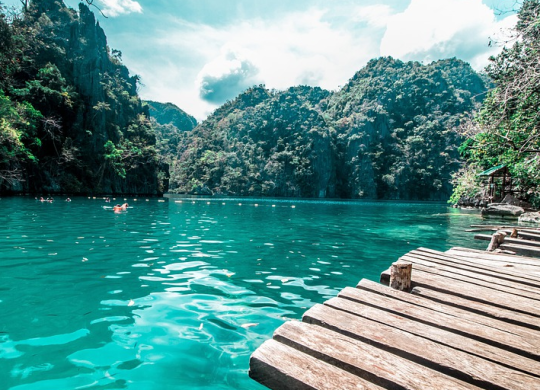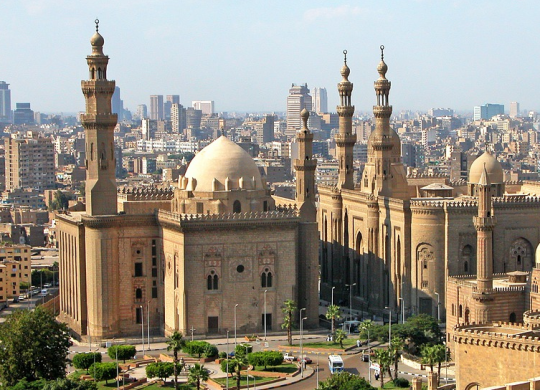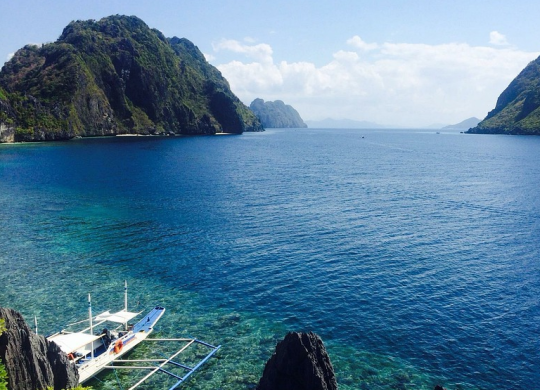Obtaining permanent residence in the Philippines: the pros and cons of life, types of visas to the country

The Philippines is a country in Southeast Asia, consisting of many islands. Year-round summer, azure sea, beautiful landscapes, beautiful beaches, and island lifestyle.
What do we know about the Philippines
The Philippines has two official languages, Filipino and English. Although Filipino is mostly spoken in the country and is the national language, English is used in business, media, and education. Most of the local population is Catholic, but officially the state is secular.
The Philippines is great for those who like an unhurried way of life, exoticism, sea, diving, and a warm climate. A comfortable stay is enough to have a stable remote job and a good level of English.
This country remains a mystery, even in the heyday of international tourism, the local culture and customs have not yet become mainstream. All the more surprising is that the government of the Republic has been successfully implementing an advanced immigration program for several years now. It is now possible to come to the islands under special permissions designed for immigrants and temporary residents, as well as visas issued directly at the border and through the consulate.
Pros and cons of living in the Philippines
Pros:
• Year-round summer and good acclimatization;
• High level of medicine and lack of dangerous pathogens, which is typical of countries with hot climates;
• Friendly and friendly local people;
• The low crime rate;
• Easy procedures for obtaining permanent residency and the opportunity to migrate;
• English is the official state language;
• The pleasant and varied climate in the country;
• Beautiful nature, beaches, sea. Beautiful tourism areas;
• No traffic jams;
• Relatively low prices for food, accommodation, and services.
Cons:
• Dirt everywhere. This is considered normal for the local population.
• Borrowing from cultures of different countries.
• Mercantilism. At first, there is some discomfort and it is difficult to adjust to the locals.
• Slow and bad internet.
• Some difficulty with food, borrowing cuisine from different countries.
• A large number of beggars.
• A lot of inexperienced and poorly trained drivers, which is due to the ease of getting a driver's license.
• Poorly developed rental of small vehicles.
• All the houses look monotonous and gray, and you can see rats running around the city.
Obtaining a Permanent Residence Permit in the Philippines
At the moment there are such ways to get a residence permit:
• Non-immigrant visas.
To reside in the Philippines for a long period, one can apply for one of several types of non-immigrant visas. These temporary residency permits are the first step in obtaining residency status. Non-immigrant visas are suitable for foreign nationals who are coming to the country to form a relationship with a resident, for education, or for employment (if invited by an employer). Entry permits of this type are issued to employees of diplomatic missions.
• Working Permit.
Obtaining a work permit for temporary residence in the Philippines is available to any foreign national who has found a local employer in advance. Migration Service of the Republic does not limit applicants to the list of professions or salary levels - you can come for any job, for any salary. The validity of the permit issued under this scheme is 3 years and may be further extended for a period of 1 to 3 years. On a work visa to the Philippines can come not only a foreign specialist but also his family members - spouse, and children under 21 years of age. The applicant's financial security must include expenses for the entire family.
• Student visa.
The Philippine government encourages the interest of foreign students in local educational institutions. It is quite easy to enroll in any of them. It is necessary to apply to the management of the university, college, or other institution and pass a test. According to the results will be issued a certificate of admission, should be presented at the consulate with a package of other documents. A study visa will be valid for the entire period of study, but only foreign nationals over the age of 18 can apply for it. A Permit of this type requires the payment of a consular fee of approximately $200.
• Residence permit through marriage with a citizen of the Philippines.
• A residence permit for retirees with a large passive income.
• Obtaining a residence permit for investment.
One of the most effective ways to get a permanent residence permit. The way of obtaining residency status through investment, business creation, or purchase of assets is preferred by many foreigners. The Republic of the Philippines grants investor visas to those who have invested in the economy of the state 75 thousand dollars. This opportunity is open to persons over 21 years of age with no criminal record, who have confirmed their health with the appropriate documents and certificates. Based on the investor visa the country can enter not only the businessman but also his family, including children.
Recommended articles
3 min
Residence permit
How to get a residence permit in Greece: types of permits and registration procedure
Greece is a European country that attracts expats from different parts of the world. For long-term residence here, a foreigner must have a residence permit. Find out what types of residence permits are available in Greece and what is the procedure for obtaining them
31 paź. 2024
More details3 min
Expats
Moving to Egypt for permanent residence: necessary documents and visa requirements (updated)
Despite the exoticism and cultural peculiarities of Egypt, a large number of expats are considering this destination for permanent residence. And this is not surprising, as the country offers an affordable cost of living, a warm climate, and endless opportunities for recreation. Learn more about visa requirements and necessary documents for moving to Egypt in 2024
09 maj. 2024
More details3 min
Treatment
3 min
Employment
Employment in the Philippines in 2024: features of the labor market and popular vacancies (updated)
The Philippines is not only a tropical travel paradise, but also a great place to live permanently. This island country can offer favorable employment conditions for foreigners. Find out more about the peculiarities of the labor market, salaries and the most popular vacancies in the Philippines in 2024
12 maj. 2024
More detailsAll materials and articles are owned by VisitWorld.Today and are protected by international intellectual property regulations. When using materials, approval from VisitWorld.Today is required.